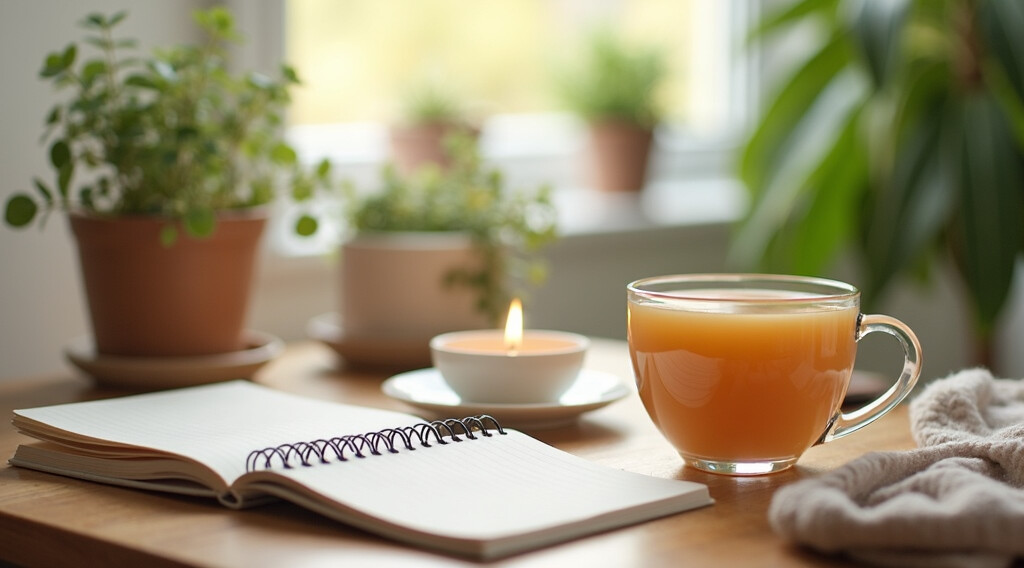
I find that selfcare doesn’t always need to cost a lot or feel complicated. You can support a healthy mind and body with affordable and easy habits that really matter over time. Many people think of spa getaways or pricey fitness classes, but I’ve learned that the real power of selfcare often lies in small choices that fit easily into daily life. In this guide, I’m sharing practical, budgetfriendly selfcare ideas that help me maintain mental and physical wellbeing, with tips and examples drawn straight from my own experience.
Why Self-Care Matters for Mind and Body
Selfcare plays a really important role in supporting overall health. When I pay attention to my own needs, I notice improvements in my mood, concentration, and energy levels. Research from the National Institute of Mental Health shows that good selfcare is connected with reduced stress and better physical health. Simple practices can help lower anxiety, improve sleep, and even support my immune system.
I used to think that selfcare was optional, but over time, I saw how skipping it could lead to burnout, tension, and a general sense of feeling “off.” Looking after myself isn’t selfish or indulgent; it helps me function at my best for work, family, and friends. Whether you’re a student, a parent, or working full-time, these practices are worth fitting into your day.
Affordable Ways to Boost Mental Wellbeing
Mental selfcare is about keeping your mind healthy and resilient. I stick with ideas that don’t cost much but offer real results. Here are some mental selfcare ideas I return to again and again:
- Journaling: Writing down thoughts helps me sort through emotions and spot patterns. All you need is a notebook and pen, or even a free app on your phone. Even just five minutes of writing in the morning or before bed can help me feel lighter and more organized.
- Mindful Breathing: Taking slow, deep breaths brings rapid calm during stressful moments. My favorite is the 4-7-8 technique: inhale for four seconds, hold for seven, and exhale for eight. No tools required, and I use this anytime, even during a busy workday.
- Digital Detox: Turning off my phone or stepping away from screens for an hour gives my brain a chance to reset. Sometimes, I switch my phone to airplane mode during meals or focus sessions. This helps minimize information overload and improves my focus.
- Reading for Pleasure: Borrowing novels or audiobooks from the library provides a mental break. Even ten pages a day helps me unwind without spending extra money.
- Nature Walks: Stepping outside for a short walk, even around the block or at a local park, clears my head and helps reduce tension. Studies from Stanford University show that nature walks lower anxiety and support creative thinking.
Simple Physical Self-Care on a Budget
Looking after my body is a big part of selfcare. Physical wellbeing has direct effects on my mood, stress, and energy. I’ve picked up these affordable, effective habits to support a healthy body without paying hefty gym fees:
- Stretching at Home: Following a tenminute stretching video from YouTube or doing simple yoga poses each morning helps me stay flexible and ward off aches. I use a towel for support if I don’t have a yoga mat.
- Hydration: Making a habit of drinking a full glass of water after waking up helps me start the day strong. I also refill a reusable bottle to save on the cost of drinks outside the house.
- AtHome Workouts: Plenty of free apps and online videos offer guided workouts that don’t need any gear. Bodyweight exercises like squats, planks, and pushups are my go-tos. On busy days, I do short sessions rather than skipping exercise altogether.
- Nutritious Simple Meals: I plan easy, affordable meals using whole grains, beans, and in season veggies. Batchcooking a pot of soup or chili saves me time and helps me stick to eating healthier even when I’m busy or tired.
- Herbal Tea Breaks: Sipping herbal tea in the afternoon is a small act I find soothing for both mind and body, and it costs much less than buying coffee shop drinks.
Building Self-Care Habits Into Your Routine
I discovered that selfcare really works when it becomes part of my everyday routine. It helps to be intentional about making time for small practices, instead of seeing them as “extra.” Here’s how I build lasting habits without stress or guilt:
- Set a Reminder: I use calendar alerts or sticky notes as prompts for selfcare breaks, drinking water, or a fiveminute stretch. Gentle reminders keep me on track without feeling forced.
- Pair New Habits with Old Ones: Attaching selfcare to something I already do makes it easier to remember. For example, I stretch right after brushing my teeth or reflect on gratitude before bedtime.
- Make It Social: Inviting a friend or family member for a walk, online workout, or healthy recipe swap keeps things fun and accountable at the same time.
- Start Small: When I try to change everything at once, I end up doing nothing at all. Instead, I pick one practice to work on for a week until it feels natural, and then add others as I go.
Challenges and How to Overcome Them
Sticking to any selfcare plan can feel tough, especially on a tight schedule or budget. I’ve faced challenges along the way, but I’ve found simple ways to adjust and keep going:
- Lack of Time: Breaking up practices into smaller chunks makes selfcare manageable. Even three minutes of mindful breathing or stretching can help, especially on packed days.
- Limited Space: I carve out a tiny corner, even just one chair or a spot on the floor, as my “selfcare zone.” Creating a calming space doesn’t require extra money; sometimes a candle or a plant is enough to make it feel special.
- Low Motivation: On days when motivation is low, I let myself pick the easiest, most enjoyable activity. Simple pleasures like a walk with music or reading outside can help restore my energy.
- Sticking with It: I track my selfcare habits with a checklist or journal. Even a few checkmarks or smiley face stickers give me a sense of progress and motivation to continue.
Journaling and Mood Tracking
Keeping a selfcare journal helps me understand what works best. I jot down which activities lift my mood or boost my energy. Over time, these notes make it easier to spot what helps in different situations. For example, I now know that five minutes of breathing and a short walk are my best reset options during stressful days.
Affordable Self-Care for Tough Days
I’m honest about the fact that some days still feel overwhelming, even with the best selfcare intentions. On those tougher days, I fall back on the simplest ideas. Curling up with a blanket and a good book, listening to calming music, or looking through photos of favorite memories always help. Sometimes, selfcare just means saying “no” to extra obligations and giving myself permission to rest.
Extra Self-Care Tips: Creative and Fun Ideas
Selfcare isn’t only about routines; it can be creative and enjoyable, too. Here are some additional budgetfriendly ways I like to mix things up and nurture both my mind and body:
- DIY Skincare: Making a gentle facial scrub from oatmeal and honey or a soothing face mask from yogurt gives me the “spa” feeling at home, at almost no cost.
- Art and Coloring: Doodling in a notebook or doing simple coloring pages helps calm my mind. Supplies can usually be found around the house, and there are many free printable resources online.
- Upcycling Projects: Turning old jars or tins into planters or organizers gives me a sense of accomplishment and reduces clutter in my space.
- Gratitude List: Writing three things I’m grateful for, even on rough days, helps switch my focus. Looking back at this list on harder days is especially uplifting.
If you’re looking for even more ideas, try connecting with others in your community. Swapping tips or joining a free group class at a local library can keep selfcare fun and social without putting a dent in your wallet. Free community yoga or meditation meetups can also be a nice way to explore new habits while meeting like-minded people.
Frequently Asked Questions
These are questions I often hear when talking with friends or sharing selfcare ideas.
Question: How can I stick with affordable selfcare if I have a very busy schedule?
Answer: Start tiny. I find that even three minutes for a breathing pause or just ten pages of a book can make a big difference. Short sessions are more realistic, and they’re still meaningful over time.
Question: What if I lose motivation for selfcare halfway through the week?
Answer: I’ve learned to choose the least intimidating option on low-motivation days. Picking the activities I enjoy the most, even if they feel small, helps me build a rhythm again without added pressure.
Question: Are there any risks or things to watch out for?
Answer: Most selfcare ideas are low risk, but it’s important to listen to your body. If any stretch or exercise hurts, I stop right away. For deeper mental health support, I reach out to professionals or local resources if needed.
Getting Started with Affordable Self-Care
The best selfcare ideas are the ones you’ll actually enjoy and repeat. By making small changes and prioritizing what helps you feel rested, positive, and well, I’ve found it much easier to maintain a healthy mind and body. There’s no need to spend a lot to get these benefits. Start with what you have, make it fun, and remember that every little effort counts toward feeling your best.

I believe if people would take the time and really pay attention to their health and how they treat themselves, the doctors’ offices would not be as full, and the benefit is that you would be able to save your very own hard-earned dollars. There is a saying that ” one should take the time a smell the roses along life journey” once we seek to enjoy the simple things in life it will help contribute to hoe we care for our selves.
Absolutely! Yes, I totally agree. There are certain things that are fundamental for human health, like good food, clean water, and clean air. Exercise, as well! I believe that if we get those things right, and in the proper proportions without excess, everything else that constitutes good health will fall into place. Because, what do we have right now? Bad food, dirty water, polluted air, and everyone’s obese. It’s no accident that our bodies are falling apart and we have more diseases than ever before.
Mark
There are so many wonderful things you can do when it comes to self care and it doesn’t have to cost an arm and a leg. Simply stopping to smell the daisies or waliking out into the fresh air and taking a few deep breaths is so doable. Making time for yourself is so important. The problem is making time. Scheduling it into your day is super important. Thank you for these great tips and reminders how important it is to take time for yourself.
Absolutely! We have to make time for self-care the same way we make time when other important people in our lives make demands of our time.